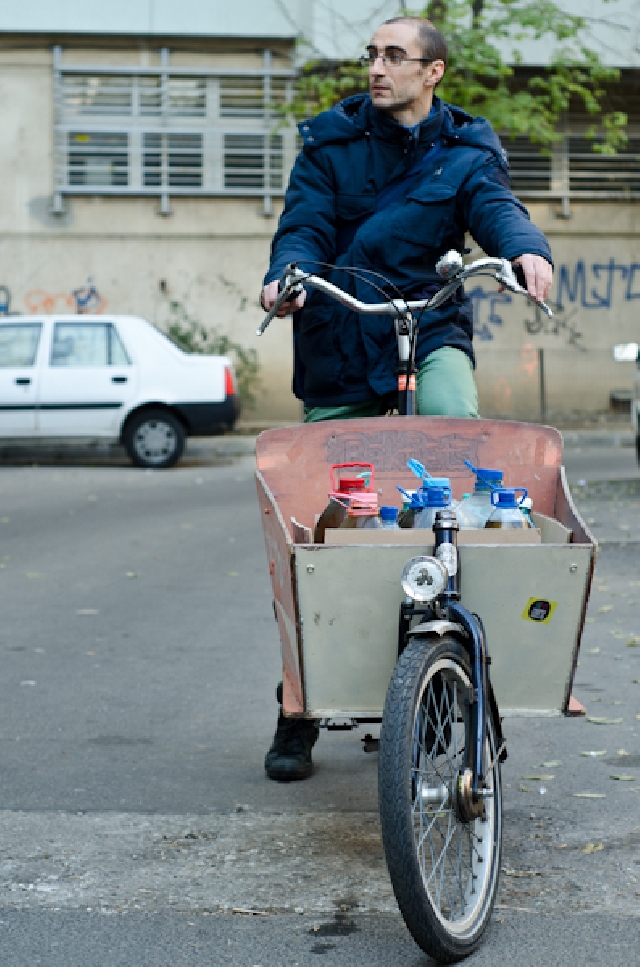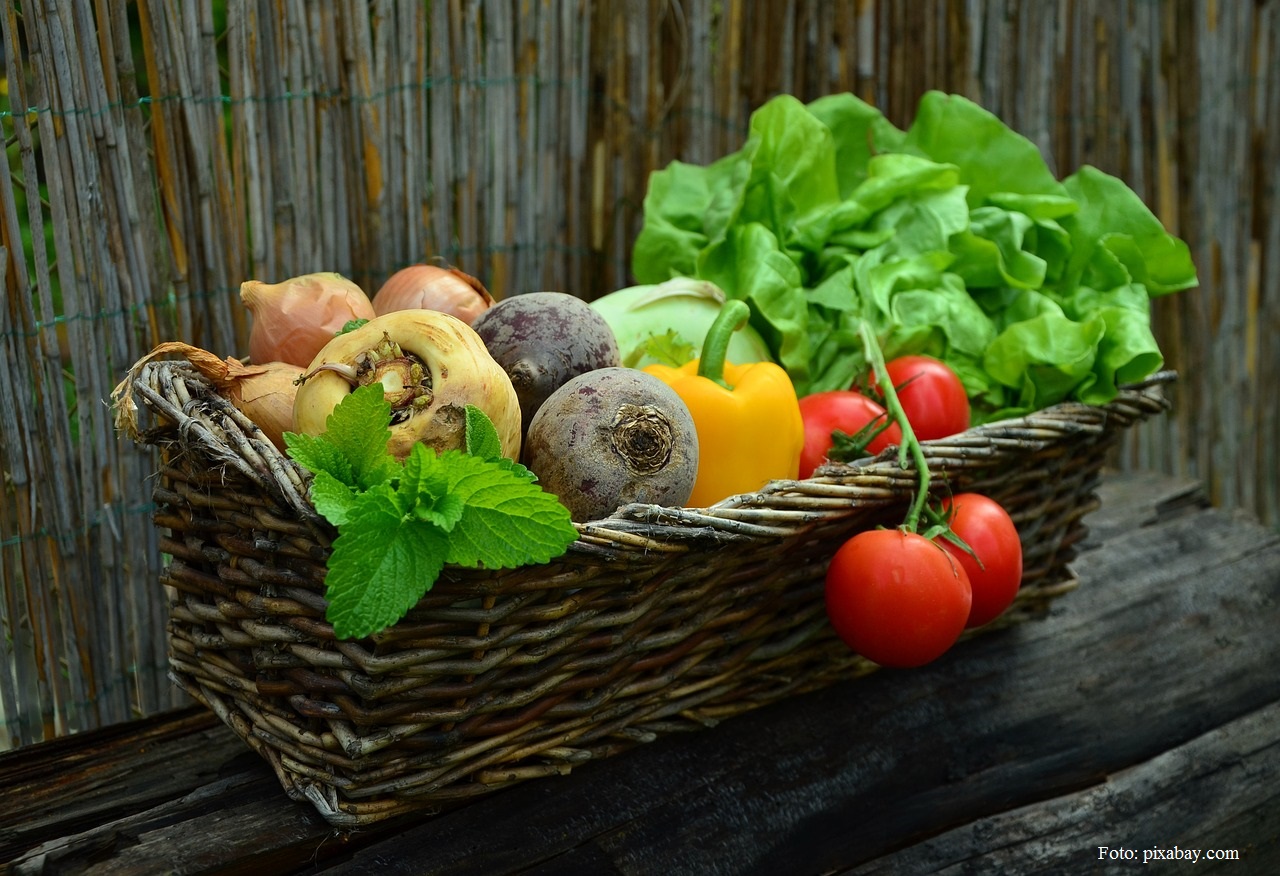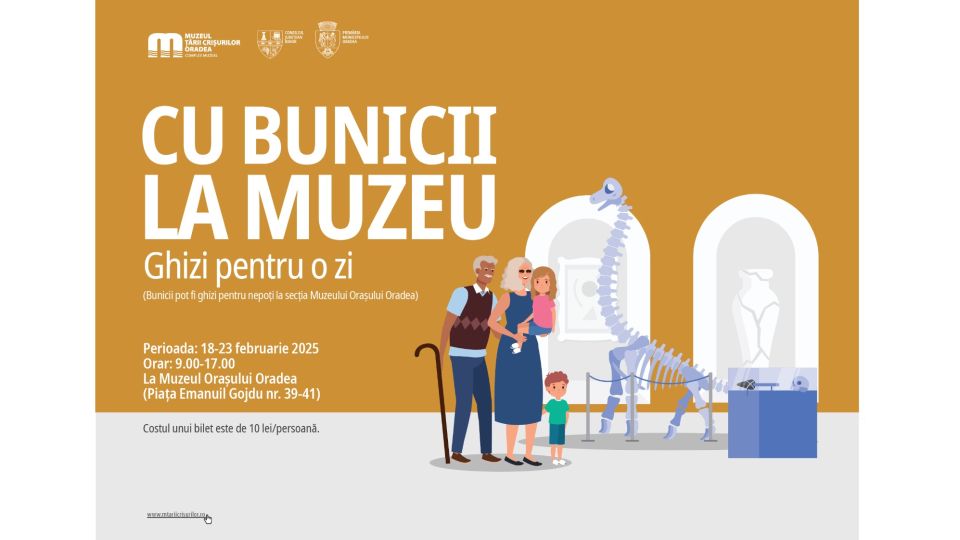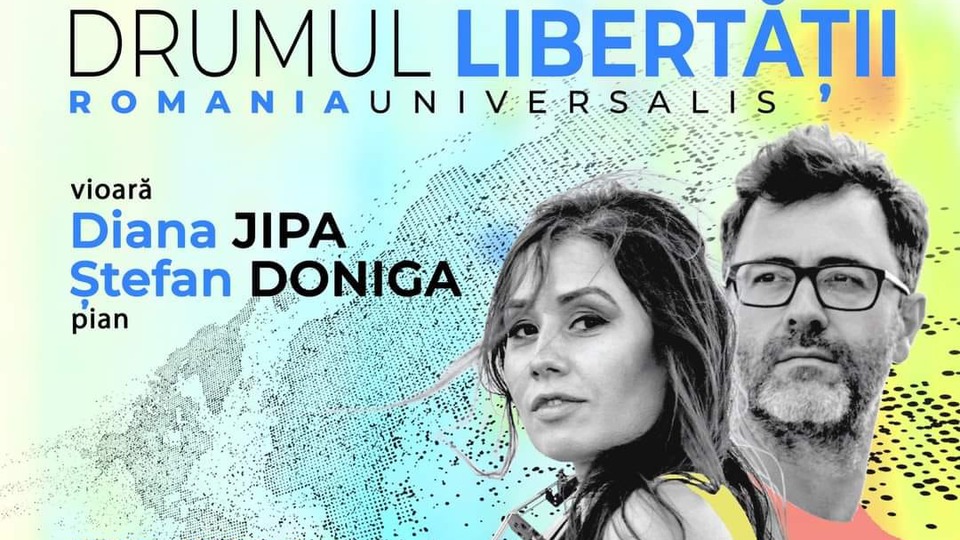Used oil recycling
In 2013, Marian Scafaru launched the first private project for collecting and recycling used oil.

România Internațional, 28.09.2014, 13:12
From time to time on the streets of Bucharest you will see a cargo bicycle. There aren’t many such bicycles in traffic but whenever it appears people react by frowning in wonder, smiling or honking their car horns. The one driving the cargo bicycle is Marian Scafaru and he drives his bicycle throughout the city with a purpose. In December 2013 he launched the first private project for collecting and recycling used oil. We asked him how the idea crossed his mind:
“I had worked in several multinational companies. I’m a former corporatist, and out of the wish to break free from the closed office space, to start meeting people and socializing, I have chosen to devote myself to this project which I like very much and which I am quite confident about. The idea occurred to me after I saw an ad on the Internet. It read as follows: ‘we give you money for oil’. More precisely you received 1.5 lei per one litre of oil. The program was addressed to individuals and I wanted to find out more about it. I went to the oil collection centre where I discovered that the program was not very successful. It is estimated that 99% of domestic users throw the used oil in the sink or the sewerage system. And I realised why the program was not successful: collection centres’ representatives only went to the consumer’s homes to collect the used oil if the amount of oil was at least 30 litres, and people generally could not collect such a big amount of oil. I thought the program could be successful if people got organized in groups or associations of blocks of flats, but I came up with the idea of the project. I put this project together several months before launching it and I launched it when I was sure that I have the necessary support for carrying it out. I got the support of the cyclists’ communities in Bucharest, the project was launched without an initial investment but through partnerships we have had the opportunity to promote the project, to use a cargo bicycle, to make a website, print flyers, and so on”.
Marian Scafaru’s cargo bicycle has a tank attached to it with a capacity of 80 kilograms. This allows him to collect smaller amounts of used oil. Those who collected at least 2 litres of used oil can access the website uleiosul.com, where they are asked to fill in a form, and then they will be contacted to set a day and a time when to hand over the used oil they collected. Very few people are aware of the damage used oil can cause to humans and the environment alike, says Marian Scafaru.
Used oil corrodes pipes and blocks treatment stations, and the maintenance costs of these stations will be transferred to the bills to be paid by domestic consumers. It is estimated that 1 litre of used oil can pollute up to one million litres of water. Moreover, when the used oil reaches a river, it forms a film on the water surface thus blocking the oxygen needed by water creatures and plants. The soil also needs many years to regenerate and become fertile again after being ‘contaminated’ with used oil. Ever since the launch of the project Marian Scafaru has collected around 950 litres from 150 persons. He explains:
“We have a data base that includes 300 people. Half of them have already handed over the used oil they collected, for some of them being the second time they do that. That makes us happy and we are confident that we’ll have success with this project, because we are making efforts to promote our project and the more people find out about it the bigger the amounts of used oil collected. People are very happy that there is a place where they can hand out the oil they collected, some collect 5 litres in 2 years’ time while others in only 2 months. I met someone who had collected 40 litres of oil in many years, and he simply didn’t know what to do with it, as he didn’t want to throw it away, being aware of the harmful effects of his gesture. We intend to approach the Hotels-Restaurant-Catering HORECA network, mainly the small companies. We realized that many of these companies throw the used oil because they cannot collect more than 30 litres per month. But in our opinion 20 litres is quite an amount of used oil”.
But what happens with used oil? Well, it can be transformed into an alternative source of energy. Out of one litre of used cooking oil 900 ml of biodiesel are produced and the by products resulted after the production of biodiesel will be turned into soap and construction materials. Biodiesel is a renewable fuel that can be used by the engines of big vehicles such as trucks and even ships. Marian Scafaru plans to open his own recycling station soon:
“At present we take the collected oil to a collection centre from where it is taken to Austria where biodiesel is produced. We want to be able to produce biodiesel here in Romania very soon. The technology is not very complicated. From the by products resulted following the transformation of used oil into biodiesel we could make good soap for personal care. The plan is to develop the project throughout Bucharest, to use a cargo bicycle in each sector, we want to promote this type of bicycles in traffic, to demonstrate that things can be done without a car.”
The people from whom Marian Scafaru collects used oil are very appreciative of his project. And people’s appreciation, which he did not enjoy too often when he was a corporatist, motivates him to take the project to another level. He has already included used batteries, light bulbs and fluorescent lamps on the list of recyclables he collects.






























